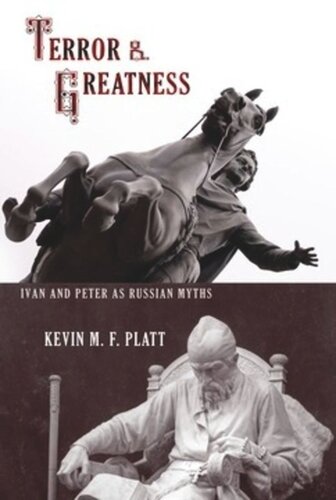

Most ebook files are in PDF format, so you can easily read them using various software such as Foxit Reader or directly on the Google Chrome browser.
Some ebook files are released by publishers in other formats such as .awz, .mobi, .epub, .fb2, etc. You may need to install specific software to read these formats on mobile/PC, such as Calibre.
Please read the tutorial at this link: https://ebookbell.com/faq
We offer FREE conversion to the popular formats you request; however, this may take some time. Therefore, right after payment, please email us, and we will try to provide the service as quickly as possible.
For some exceptional file formats or broken links (if any), please refrain from opening any disputes. Instead, email us first, and we will try to assist within a maximum of 6 hours.
EbookBell Team

4.0
56 reviewsIn this ambitious book, Kevin M. F. Platt focuses on a cruel paradox central to Russian history: that the price of progress has so often been the traumatic suffering of society at the hands of the state. The reigns of Ivan IV (the Terrible) and Peter the Great are the most vivid exemplars of this phenomenon in the pre-Soviet period. Both rulers have been alternately lionized for great achievements and despised for the extraordinary violence of their reigns. In many accounts, the balance of praise and condemnation remains unresolved; often the violence is simply repressed.
Platt explores historical and cultural representations of the two rulers from the early nineteenth century to the present, as they shaped and served the changing dictates of Russian political life. Throughout, he shows how past representations exerted pressure on subsequent attempts to evaluate these liminal figures. In ever-changing and often counterposed treatments of the two, Russians have debated the relationship between greatness and terror in Russian political practice, while wrestling with the fact that the nation's collective selfhood has seemingly been forged only through shared, often self-inflicted trauma. Platt investigates the work of all the major historians, from Karamzin to the present, who wrote on Ivan and Peter. Yet he casts his net widely, and "historians" of the two tsars include poets, novelists, composers, and painters, giants of the opera stage, Party hacks, filmmakers, and Stalin himself. To this day the contradictory legacies of Ivan and Peter burden any attempt to come to terms with the nature of political power—past, present, future—in Russia.